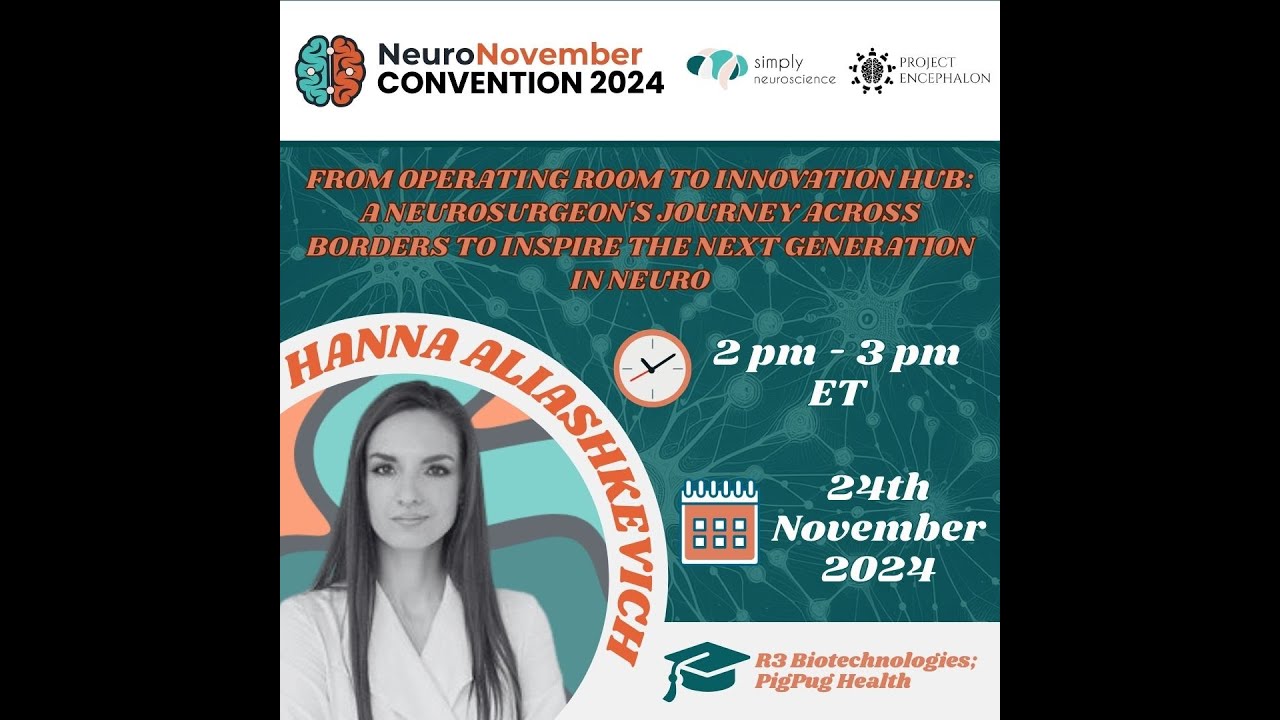Summary of the interview
This talk by Dr. Hannah, a neurosurgeon and neuroscientist, offers an inspiring blend of her personal journey and professional breakthroughs. From reconstructive neurosurgery in Belarus to co-founding a U.S.-based neurotechnology company, she shares insights into developing innovative therapies using brain-computer interfaces and neurofeedback platforms for ADHD and autism. Dr. Hannah emphasizes the importance of neuroplasticity, career adaptability, and networking while discussing opportunities in the growing neurotechnology industry. With actionable advice, resources for career development, and inspiring anecdotes, this talk is a goldmine for students and early-career professionals aspiring to make an impact in neuroscience or neurotechnology.
Key Concepts
- Pioneering Research: Dr. Hannah’s work on Simplex herpes virus and glioma cell tumors published in top journals.
- Neurotechnology Innovations: Development of brain-computer interface tools for ADHD and autism therapy.
- Career Pathway: Transition from neurosurgery in Belarus to neurotechnology entrepreneurship in the U.S.
- Networking and Visibility: Importance of joining associations like the European Association of Neurosurgical Societies or the Women’s Neurosurgery Chapter.
- Education and Training Resources: Opportunities like the My Neurotech micro-credential program, UC Berkeley’s Neurotech Collider Lab, and free NeuroTech courses.
- Immigration and Opportunities: Insights into talent visas (O-1A, EB-1A) and their role in advancing research and innovation careers in the U.S.
- Mental Health Advocacy: Tackling ADHD in children with non-invasive, AI-powered neurofeedback platforms as an alternative to psychostimulant medications.
- Female Representation: Challenges and perseverance in a male-dominated field.
- Neurotech Market Growth: Predictions of the industry expanding from $12 billion to $40 billion by 2030, emphasizing immense career potential.
Watch the full video here:
How do you see yourself contributing to the future of neuroscience or neurotechnology, and which of Dr. Hannah’s career strategies could you adopt to achieve your goals?
